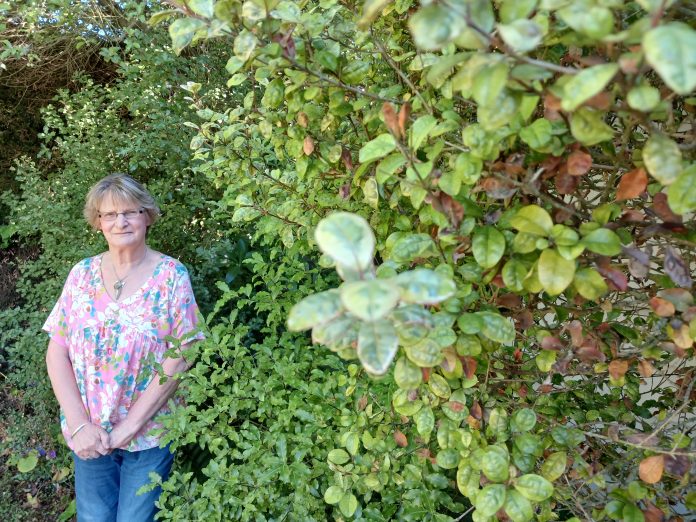
From the kitchen table in Clandeboye, to the home office in Temuka, to an actual office in Timaru, Judith Mackle has been an integral part of Access Community Health for 35 years.
The longtime senior care coordinator retired from the role last week, and while reluctant to have a farewell function, others wanting to thank her and wish her well in the future prevailed, with flowers, gifts, hugs and tears.
Described as a legend, a rock, the person who knew everything, the first port of call, and someone who had built strong relationships with support workers and clients, the woman who admitted to much preferring to remain in the background had to accept her moment in the spotlight.
It began when a newlymarried Judith Mackle moved to Clandeboye to live and work on the family dairy farm with husband Brian in 1979, and was invited to join the Clandeboye WDFF (Women’s Division Federated Farmers), a way to meet other country women.
‘‘At that time, it seemed to take ages to get out to Clandeboye, the cheese factory was only small, and the corner shop had only just closed.’’
When the children — Rachael and Tim — came along, Mrs Mackle became involved with Plunket and play group as well. With her experience in banking, she was shouldertapped to become treasurer of the Clandeboye WDFF, and eventually, in the late 1980s, to begin serving as an apprentice of sorts to Jean Kelland, who, with husband Keith, coordinated the then WDFF home care service.
‘‘Jean said, if she got sick, who was going to do it? And someone said, ‘we’ve got a young member who is very good at books.’’’
WDFF was the only organisation offering home care in the early years, with many of the clients referred by ACC and New Zealand Income Support.
Mrs Mackle’s role included billing the payers and paying staff — ‘‘I remember writing out a lot of cheques and sending them out by post in little brown envelopes’’.
Changes in the 1990s to the health system meant home care work was put out for tender, and WDFF moved to a more business-like model and a new name, and successfully bid to continue the work.
That change also meant Mrs Mackle’s voluntary efforts were rewarded with $20 a week for the use of the office at home, and eventually the provision of a fax machine, a separate phone line and a computer.
The work grew to include rostering and co-ordinating nurses, support workers and clients, and a wage of $12 per hour.
Eventually, the business grew too big for Mrs Mackle’s home office and in the early 2000s, a central business office space was acquired.
‘‘I decided I’d give it a go and see how it went for a few months . . . and I stayed.’’
Retirement has been in the pipeline for a while, but now seemed to be the right time.
‘‘I’d been thinking about it since about 2003, but I have enjoyed the work, I enjoyed helping people, I liked to be in the background just getting the job done, and having the satisfaction of getting it done properly.’’
Rostering has been a challenging part of the job, and it has been a big responsibility to ensure people get to where they are needed.
She says the work is more complex now; there is more personal care required, and people are remaining in their homes longer.
‘‘Skilled support workers are doing a lot more than they used to do.’’
For now, she is looking forward to a change of pace, more time to spend with her two grandchildren, and a bit more reading and gardening.
‘‘I’ll enjoy finding something new to do, I haven’t really had time to have a hobby.’’




